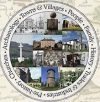For several centuries the Cunninghams were among the top landowners in Renfrewshire. Their core estate was at Craigends, and they had further property in Kilbarchan village. The Cunninghams also owned many other lands in the parish. These included along the Black Cart (around Over Johnstone), along the Locher (Kaimhill, Clippens and Windyhill) and, also, up the Gryfe to Bridge of Weir, Thriplee, and Craigends Denniston, then across into Erskine parish. All of these lands were managed and improved with slave money. Along with the Millikens’ coat of arms the Cunninghams’ coat of arms graced Kilbarchan parish church.
The Cunningham’s neighbour, James Milliken, returned from the Caribbean in 1729. Two years later, Cunningham acquired the 3,500 acre Grandville plantation in Westmoreland, Jamaica, and used it to fund improvements at home. When the 11th heir, Alexander Cunningham inherited Grandville in the 1780s from his father, he also used the income to improve his lands. He abandoned his old garden and built a new three acre walled garden, with orchard, hotwall, and melon and peach houses.
The Cunninghams were not ‘absent’ landlords who managed their slaves from the Scottish side of the Atlantic. Like fellow landowners such as the McDowalls and Millikens, they preferred to have a family member in control. William, the second son of the 8th laird, (b.1693) went to Jamaica in the 1730s. Others followed, right through to the 12th Laird, William, (b.1757) who lived and died on Jamaica. His brother John, the next heir, has a large epitaph inside Kilbarchan old kirk. This remembers John as ‘kind, candid, sincere and firm, walking humbly with his God’. There is a deep conflict between the church connections of Renfrewshire’s landed elite and their ownership of Africans.
By the 1770s, lists of chattels owned by the Cunninghams give details of nearly 300 enslaved Africans working 377 acres of sugar cane. They were captured on the west coast of Africa and carried in deplorable condition across the Atlantic. When Cunningham purchased the Africans off the slave ships, he gave them new names, including ‘Kilbarchan’, ‘Craigends’ and ‘Paisley’.

By 1834 the Cunninghams had profited from Grandville plantation for a century. In the Government compensation records at the abolition of plantation slavery that year, William Cunningham, 14th of Craigends, was awarded £3,278 for the loss of 185 enslaved Africans at Grandville (more than £200,000 at today’s value). Their overseer, Taylor Cathcart, was also compensated for loss of slaves on a plantation of his own.
Next door to the Cunninghams, Lochwinnoch Parish was dominated by the McDowall family. Next time we will see how slave money was used to improve Lochwinnoch Parish.
© 2019 Stuart Nisbet

